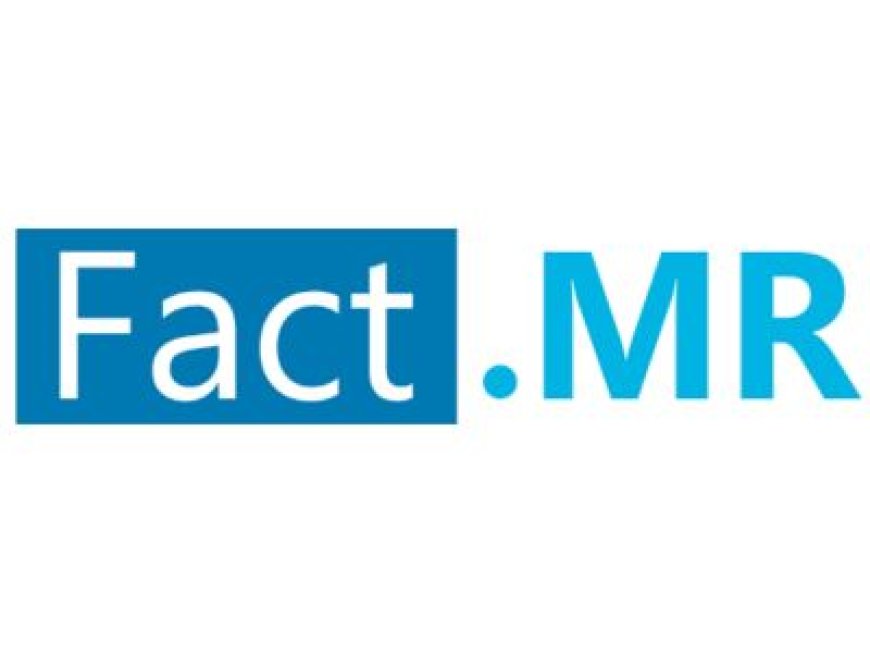Market Dynamics of Salt Hydrates: Current Trends and Future Outlook
The market of global salt hydrate was valued at US$ 95.8 million in 2024 and is projected to reach US$ 255.4 million by the end of 2034, growing at a CAGR of 10.4%.

The market of global salt hydrate was valued at US$ 95.8 million in 2024 and is projected to reach US$ 255.4 million by the end of 2034, growing at a CAGR of 10.4%. In recent times, this product has gained great attention all over the world for its numerous applications across industries, from energy storage to advanced construction materials. Salt hydrates are inorganic salts with water molecules in their crystalline structure. These are very essential salts, related to many chemical and industrial processes; therefore, they become quite crucial elements for many industries.
Get Free Sample Copy of This Report: https://www.factmr.com/connectus/sample?flag=S&rep_id=9948
Salt Hydrates Pricing
The prices for salt hydrates vary significantly based on the type of salt hydrate, its purity, and application. Salt hydrates' average price range may hover between $20 to $200 per kilogram, essentially driven by the demand from end-user industries and the depth of complexities involved in producing high-purity salt hydrates. For instance, salt hydrates applied in thermal energy storage systems—phase change materials—may be at a higher price due to the required higher purity and specialized thermal properties.
Applications of Salt Hydrates
Salt hydrates are applied in a very wide range because of the processes of reversible hydration and dehydration undergone by them. Some of the most common uses of salt hydrates include:
Energy Storage: The massive application of salt hydrates would be in thermal storage systems. Salt hydrates are applied as phase change materials in these systems since they exhibit the capability of absorbing and releasing heat while transiting through a phase transformation from hydrated to anhydrous and vice versa. Therefore, these are quite effective towards heating and cooling systems, coupled with renewable energy storage solutions.
Construction Materials: Salt hydrates are majorly applied in the construction industry, where they are used to make self-healing concrete. It is normally used to absorb water into the concrete in case of cracks, thus forming hydrated compounds that seal the created cracks. This will improve the durability and lifetime of concrete structures.
Dehumidification systems can use the salt hydrates to eliminate air moisture and hence control the levels of humidity within the different settings. The application in this fact is evident in industries that are in dire need of controlling the humidity level, for instance, use in pharmaceuticals, electronics, and food storage.
The application of salt hydrates in the pharmaceutical industry includes formulation in some medicinal products. They help in controlling the active ingredients of drugs from release, thereby enhancing the stability and efficacy of the medication. Further, salt hydrates are used during the production process of medical devices and in wound care products where their moisture-absorbing properties may aid in the process of wound healing.
Agricultural Applications: In agriculture, salt hydrates are usable as both soil conditioners and fertilizers. Their ability to release water gradually is of significance in the maintenance of soil moisture, especially in areas of low rainfall. This property, for example, is beneficial to crop production and has the potential to improve agricultural yields.
Key Companies Profiled
- Phase Change Products Pty Ltd.
- PCM Products Ltd.
- Rubitherm Technologies GmbH
- RGEES
- Climator Sweden AB
Market Dynamics and Future Prospects
Growth in the salt hydrate market is expected to be steady over the coming years, with increasing demand for energy efficiency and sustainability from various industries. Fast-growing renewable energy and energy storage technologies are expected to significantly push the demand for salt hydrates, particularly as phase change materials. Also, new, improved salt hydrates with enhanced properties can be envisaged as an outcome of the development of materials science and engineering that will further extend their applications.
However, the market also has its associated challenges in terms of the high production cost and specially designed infrastructural setup for storage and handling. Companies involved in the salt hydrate market are developing research and development activities to combat the above-mentioned challenges and discover cost-effective solutions that can serve the increasing demand.
Get Customization on this Report for Specific Research Solutions: https://www.factmr.com/connectus/sample?flag=RC&rep_id=9948
Conclusion
It holds tremendous potential for growth, driven by myriad applications in energy storage, construction, pharma, and agriculture. Though currently the cost of the hydrates will act as a limiting factor, continuous developments in technology and material sciences will bring the cost down and spread the market further. Moving ahead, with industries continuing to strive for sustainability and efficiency, salt hydrates will become key to shaping the future of some very relevant industries.
About Fact.MR :
We are a trusted research partner of 80% of fortune 1000 companies across the globe. We are consistently growing in the field of market research with more than 1000 reports published every year. The dedicated team of 400-plus analysts and consultants is committed to achieving the utmost level of our client’s satisfaction.
Contact:
US Sales Office
11140 Rockville Pike
Suite 400 Rockville, MD 20852
United States Tel: +1 (628) 251-1583, +353-1-4434-232 (D)
Sales Team: sales@factmr.com












